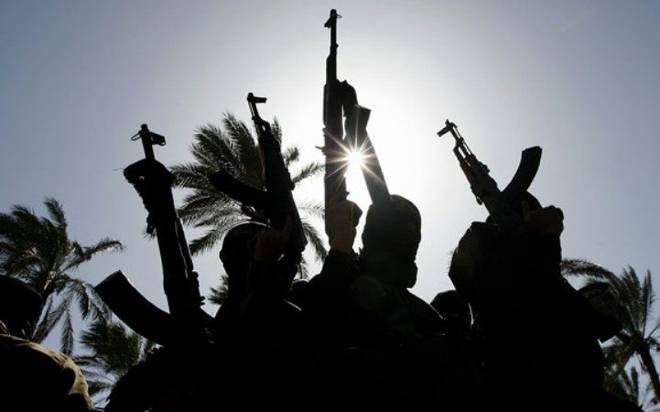Mr President, How much more?
The past couple of months have witnessed an intensification of insecurity that has continued to plague the North West. Banditry, kidnapping and cattle rustling have slowly become part of daily life. Rural dwellers retire for the night knowing well that the possibility of a murderous raid by blood-thirsty bandits is extremely high. Bandits kill over […]

The past couple of months have witnessed an intensification of insecurity that has continued to plague the North West. Banditry, kidnapping and cattle rustling have slowly become part of daily life.
Rural dwellers retire for the night knowing well that the possibility of a murderous raid by blood-thirsty bandits is extremely high.
- Bandits kill over 60 people in Katsina villages
- Name traditional rulers aiding bandits, Katsina residents tell FG
Farms are deserted for fear of getting kidnapped. Subsistence living is almost non-existent as destitution takes center stage. National dailies hardly go to print without a news item on mass killings. Households have become mourning centers.
Funeral rites and mass burials with blood stained clothing from gunshots or charred remains now a frequent sight.
Neighboring Niger, a country that has for decades largely depended on us for economic survival, now shelters our citizens who have been displaced.
The degeneration of security in the region over the years, which takes its roots from the long drawn out farmer-herder conflict over scarce resources, exacerbated by environmental alterations, illegal mining activities, proliferation of small firearms and unchecked population explosion, has morphed into a very complex and more dangerous issue, with indications of active participation by members of terrorist groups.
What makes this all the more worrisome is the proximity of the region to the Sahel, coupled with the porosity of our land borders, thereby providing easy access to other terrorist groups mulling the thought of expanding their territorial influence.
The thought of a new terrorist haven hatching in another region, while the country is still actively engaged in a ferocious insurgency with the dreaded Boko Haram terrorist group in the North East region for over a decade, with devastating economic and humanitarian consequences, is not only worrisome, but totally frightening.
As it stands, the North West lags behind in almost every economic and human development index. It is a region which records the highest poverty rate in the country, much above the national average rate. It also has the highest number of out-of-school children, high level of illiteracy, poor access to basic healthcare and a near non-existent presence of governance in rural areas.
A year-on-year comparative analysis will show that the region keeps getting worse. These factors not only contribute to the security situation, but also portend grave danger to the rest of the country and its future.
Communities are increasingly resorting to self-help by way of organizing themselves into quasi vigilante groups without recourse to proper guidelines.
While this might seem acceptable if we are to go by the popular dictum “desperate times, require desperate measures”, but the problem with such arrangements is that along the line, they themselves become security concerns.
There are cases of some found to be complicit in some activities of a criminal nature and extra judicial killings.
While there have been efforts by the federal government to address the insecurity problem in the region with the deployment of troops and several air raids on the enclaves of the terrorists, the results have been abysmal.
This can be attributed to several factors such as a lack of effective synergy between security agencies, shortage of manpower, lack of effective community policing and lack of political will especially from state governments.
By now, almost every Nigerian is familiar with the sequence of events that trail each attack carried out. After an attack is reported, the presidential spokespersons reel out a statement filled with ‘regret’ and ‘shock’ by the president and ‘promise’ to ‘deal decisively’ with the perpetrators.
Next, breaking news of a meeting with service chiefs with crisp photo-ops of stern looking faces and no details reported. After that, the spotlight is taken off the incident and only returns when the next attack occurs. Then the cycle restarts all over again.
For the victims and other average Nigerians, their lives keep getting worse by the security situation.
Their livelihoods have eroded. Familial bonds keep getting cut short by murder. Little savings continue to get depleted to secure the freedom of relatives in captivity. They cannot recall what normalcy feels like. All they yearn for is a semblance of it, in the least.
The president and his advisers need to come to terms with the reality of what the situation is. And that is, the North is burning.
And how much more does it have to lose before it is rescued?
Aliyu Hassan Aminu writes from Abuja ([email protected])
